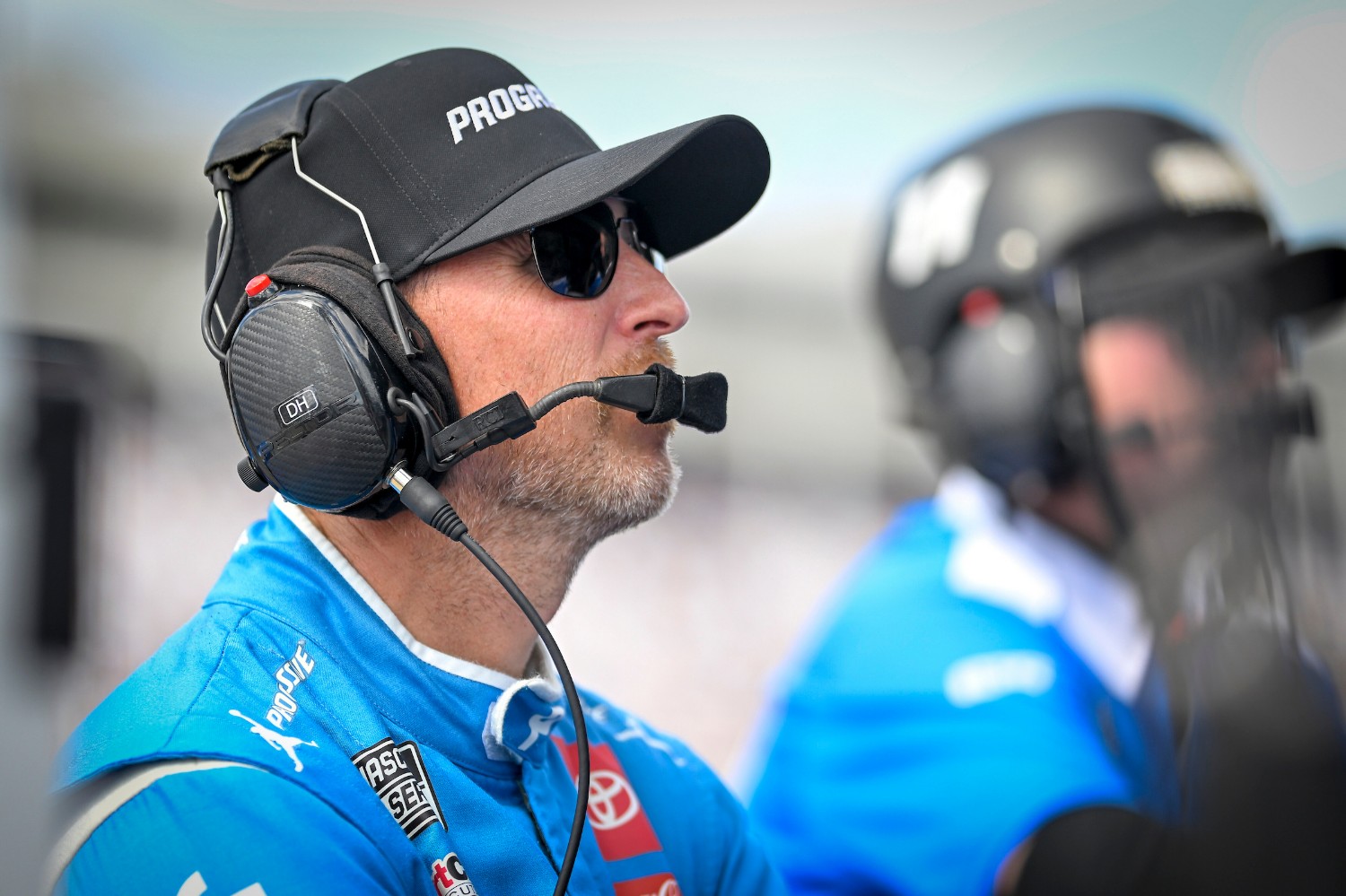NASCAR News: Hamlin says fellow owners’ Declarations “More Helpful” to our lawsuit than NASCAR’s defense
As the antitrust showdown between NASCAR and two of its upstart teams barrels toward a December trial, Denny Hamlin (pictured) isn’t sweating the latest filings from the other side.
-by Mark Cipolloni–
The Joe Gibbs Racing driver and co-owner of plaintiff 23XI Racing dismissed a stack of declarations from nine charter team owners as underwhelming for NASCAR’s case—and, in a twist, potentially advantageous for his own fight against the sanctioning body’s revenue-sharing stranglehold.
The declarations, filed Friday in U.S. District Court in Charlotte as part of NASCAR’s push for summary judgment, paint a rosy picture of the 2016 charter system and the 2025 agreement that 23XI and Front Row Motorsports rejected. Owners like Rick Hendrick, Roger Penske, and Joe Gibbs hailed the setup as a stabilizing force, crediting it with guaranteed race entries, predictable cash flows, and rising team equity values that have lured long-term sponsors and investors.
Hendrick called it a “fair deal” born of two grueling years of talks, warning that dismantling it would wreak “immeasurable damage” on the sport’s ecosystem. Penske went further, crediting NASCAR’s model for inspiring a similar charter overhaul in IndyCar next season. Even Brad Keselowski, co-owner of RFK Racing and a onetime vocal critic, conceded the 2025 pact was a “compromise” his team could stomach—one poised to boost equity growth.
But Hamlin, speaking ahead of this weekend’s Bank of America ROVAL 400 in a press conference, saw right through the scripted support. “Nothing (that was in them) surprised me,” he told reporters with a shrug.

“I didn’t think it was super helpful for them (NASCAR). I thought that it was, truthfully, more helpful for us than it was for them. Obviously, as they were asked to do it.” In Hamlin’s view, the filings—coerced, he implied, by NASCAR brass—merely underscored the charter system’s flaws without delivering a knockout blow.
They admitted to imperfect negotiations, unfulfilled team demands, and the inherent risks of the status quo, all while failing to justify the revenue splits that Hamlin and Front Row argue lock smaller outfits out of the sport’s booming profits.
The lawsuit, filed in late 2024, accuses NASCAR of monopolistic practices through its charter exclusivity, noncompete clauses, and lopsided media rights deals.
At an August 28 hearing, Judge Kenneth D. Bell floated “equitable remedies” if the plaintiffs win: forced track sales, scrapped restrictions on car usage, and a full charter teardown that could reshape NASCAR for 2026.
“It would make NASCAR look very different,” Bell noted, injecting fresh urgency into a saga that’s already spooked sponsors, drivers, and broadcasters. Hamlin, ever the straight shooter, framed the declarations as a misfire that humanizes the plaintiffs’ gripes rather than burying them.
For Hamlin, a 2025 playoff contender who’s juggled wheel-to-wheel battles with boardroom brinkmanship, the irony isn’t lost. While owners like Richard Childress and Calvin Wells of Legacy Motor Club extolled the charters’ role in taming pre-2016 chaos—flaky sponsorships, vanishing teams—the filings unwittingly echo 23XI’s core beef: Why should the France family’s France-dominated empire hoard the lion’s share?
Hamlin’s take? These endorsements, polished as they are, expose the fragile consensus NASCAR clings to, potentially swaying a jury toward the underdogs.
As the ROVAL’s twists and turns tested Hamlin on track this past weekend, the courtroom drama looms larger off it. With trial prep ramping up and the sport’s future in flux, his parting shot cuts deep: The declarations weren’t a shield for NASCAR—they were just another crack in the armor.
